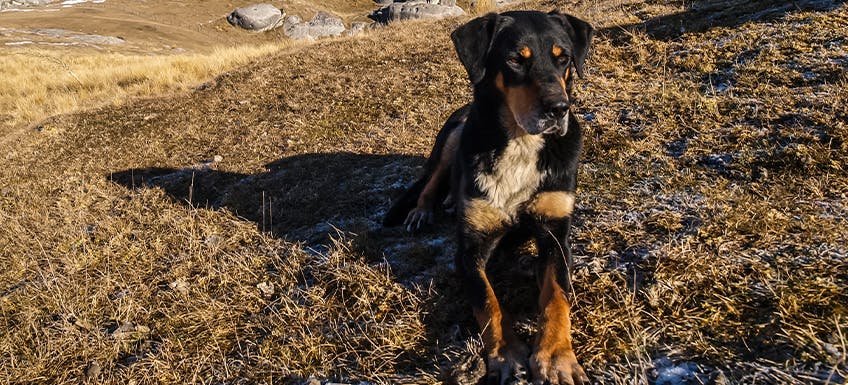
New Zealand Heading Dog
Working Dog
High Energy
Low Maintenance
Easy to Train
Low Shedding
Breed Snapshot:
- Weight: 20 - 27 kgs
- Height: 46-52 cm
- Breed Size: Medium
- Lifespan: 12-14 years
- Dog Breed Group: Working Dog
- Shed Level: Low Shedding
- Coat Type: Short hair
Description
The New Zealand Heading Dog is a highly intelligent herding breed that originated in New Zealand. They were developed by crossbreeding various working breeds, such as the Border Collie, the Huntaway, and the Australian Kelpie. These dogs are known for their versatility and loyalty, and are primarily used for herding sheep. They’re called Headers because they will go to the head of the sheep and turn them. This breed isn’t registered with the New Zealand Kennel Clubs and no formal pedigree registration system is in operation
Characteristics
The New Zealand Heading Dog has a muscular and agile body, with a short, smooth coat that can come in a variety of colours, including black and white, red, or tan. They have high energy levels and are highly obedient, making them a popular choice for working on farms and ranches. Their intelligence and quick thinking make them excellent problem solvers and independent workers.
Living Environment
These dogs thrive in environments where they have plenty of space to run and play. They are well-suited for families that have large yards or live in rural areas. They require a lot of exercise and stimulation, so apartment living is not ideal for them.
Exercise
The New Zealand Heading Dog is a high-energy breed that requires plenty of exercise to keep them healthy and happy. They need daily walks and plenty of outdoor playtime to satisfy their need for physical and mental stimulation. They also enjoy participating in agility and obedience training to challenge their intelligence and problem-solving skills.
Grooming
Their short, smooth coat requires minimal grooming, with occasional brushing to remove loose hair and debris. It's also important to keep their nails trimmed to prevent them from getting too long.
Health Problems
This breed is generally considered to be healthy and robust. Compared to purebred dogs, mixed breeds are less likely to get genetic illnesses. However, like all breeds, they can be susceptible to certain health issues such as hip dysplasia, which can cause joint pain and arthritis. To reduce the risk of genetic health problems in the New Zealand Heading Dog breed, good breeding practices are encouraged. Unhealthy animals are typically identified early and are unsuitable as working dogs. As a result, they would be left out of the line to ensure the health and longevity of the working dog population. Keeping your dog healthy and happy requires proper care and regular vet visits.
Heading Dog FAQs
What is the difference between a New Zealand Huntaway and The New Zealand Heading Dog?
While both breeds are used for herding livestock, they have different approaches and characteristics.
The Huntaway is an energetic breed that drives livestock in a particular direction using its loud bark. They are often referred to as "farm dogs with a bark." With a deep and powerful voice, the Huntaway can work tirelessly to push large groups of animals over long distances. Farmers love Huntaways for their work ethic and ability to navigate the rugged terrain of New Zealand's farms.
On the other hand, the Heading Dog is a breed that uses its natural instincts and intelligence to silently move around a flock of animals and bring them back to their handler. The Heading Dog doesn't bark to control livestock movement like the Huntaway. They're highly trainable and responsive, so they're great for precision work. In enclosed spaces, such as yards or pens, they're great because they're quiet and efficient.
Did you know...
The New Zealand Heading Dog is known for their remarkable independence and ability to work without direct instruction when herding livestock. They have a strong work ethic and stamina, making them invaluable assets to farmers and ranchers. Plus, their intelligence and loyalty make them excellent family pets.